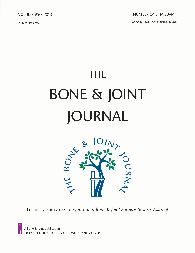
Arthroplasty
Patient-specific instrumentation does not improve alignment accuracy in TKR
Bone Joint J. 2014 Aug;96-B(8):1052-61Data from 8 RCTs and 8 cohort studies were pooled to investigate the effect of patient-specific instruments (PSI) on radiological outcomes after total knee replacement (TKR). The pooled analyses examined the following outcomes; mechanical axis alignment and malalignment of the femoral and tibial components in the coronal, sagittal and axial planes, as well as relative risks (RR) for malalignment of all studies and for RCTs and cohort studies separately. Results indicated that PSI does not increase the accuracy of alignment of TKR components compared to the conventional instrumentation used.
Unlock the full article
Get unlimited access to OrthoEvidence with a free trial
Start TrialCritical appraisals of the latest, high-impact randomized controlled trials and systematic reviews in orthopaedics
Access to OrthoEvidence podcast content, including collaborations with the Journal of Bone and Joint Surgery, interviews with internationally recognized surgeons, and roundtable discussions on orthopaedic news and topics
Subscription to The Pulse, a twice-weekly evidence-based newsletter designed to help you make better clinical decisions
Exclusive access to original content articles, including in-house systematic reviews, and articles on health research methods and hot orthopaedic topics
Or continue reading this full article
Register Now

Subscribe to "The Pulse"
Evidence-Based Orthopaedics direct to your inbox.




































